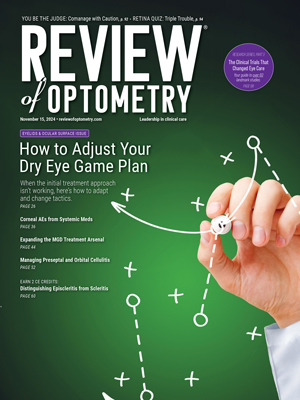You may be able to lower your patients’ uveitis risk by recommending a vitamin D supplement, a study in Ophthalmology finds.
Australian researchers compared serum vitamin D levels from ultraviolet and dietary exposure in patients with active and inactive noninfectious uveitis and in population controls.
The investigation included 151 patients—74 in the active and 77 in the inactive uveitis groups—who were recruited from two tertiary hospitals and one private ophthalmic practice. The patients completed a questionnaire on vitamin D intake and sunlight exposure, and researchers administered a serum 25-hydroxyvitamin D test on all participants.
The study reported patients with active uveitis had a median serum vitamin D level of 46nmol/L, which was significantly lower than the inactive group—64nmol/L. The investigation also found the active uveitis group had lower vitamin D levels than the local population (62nmol/L).
Investigators noted vitamin D supplementation was significantly associated with uveitis inactivity. In a further sub-analysis of vitamin D–deficient participants, researchers found sun exposure was also linked to uveitis inactivity.
“Participants with active uveitis had significantly lower serum 25-hydroxyvitamin-D levels than inactive uveitis patients and local population-based estimates. Vitamin D supplementation was found to be associated with decreased uveitis activity, as was sun exposure in those with vitamin D deficiency,” the researchers wrote in their paper.
These results suggest vitamin D supplementation should be studied as an option for the prevention of uveitis relapse in at-risk patients, they added.
| Chiu ZK, Lim LL, Rogers SL, Hall AJ. Patterns of vitamin d levels and exposures in active and inactive non-infectious uveitis patients. Ophthalmology. July 11, 2019. [Epub ahead of print]. |

